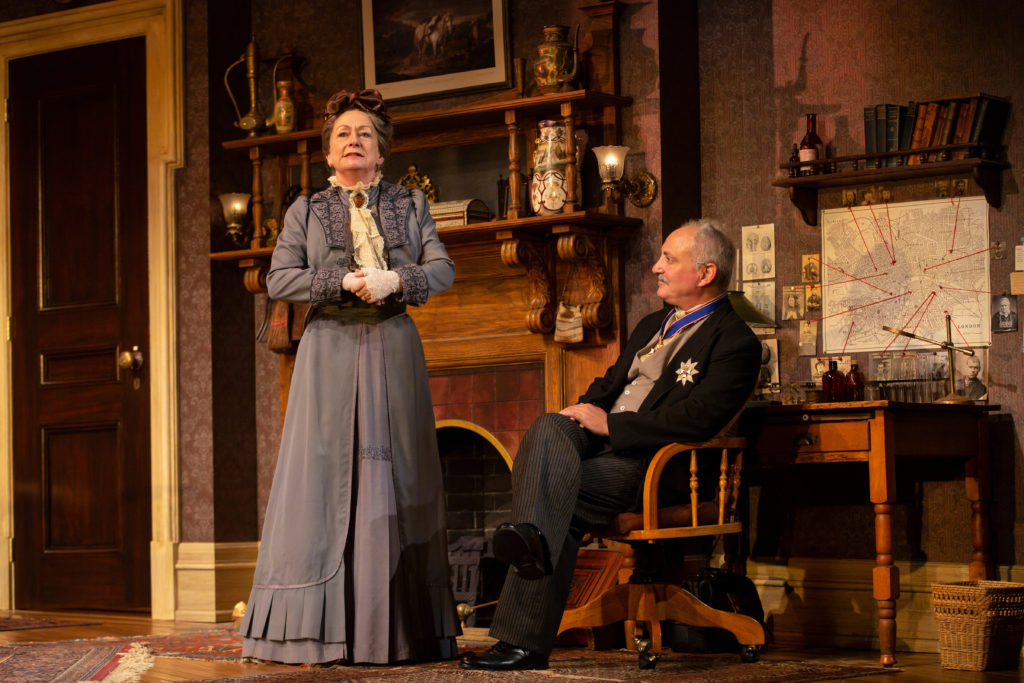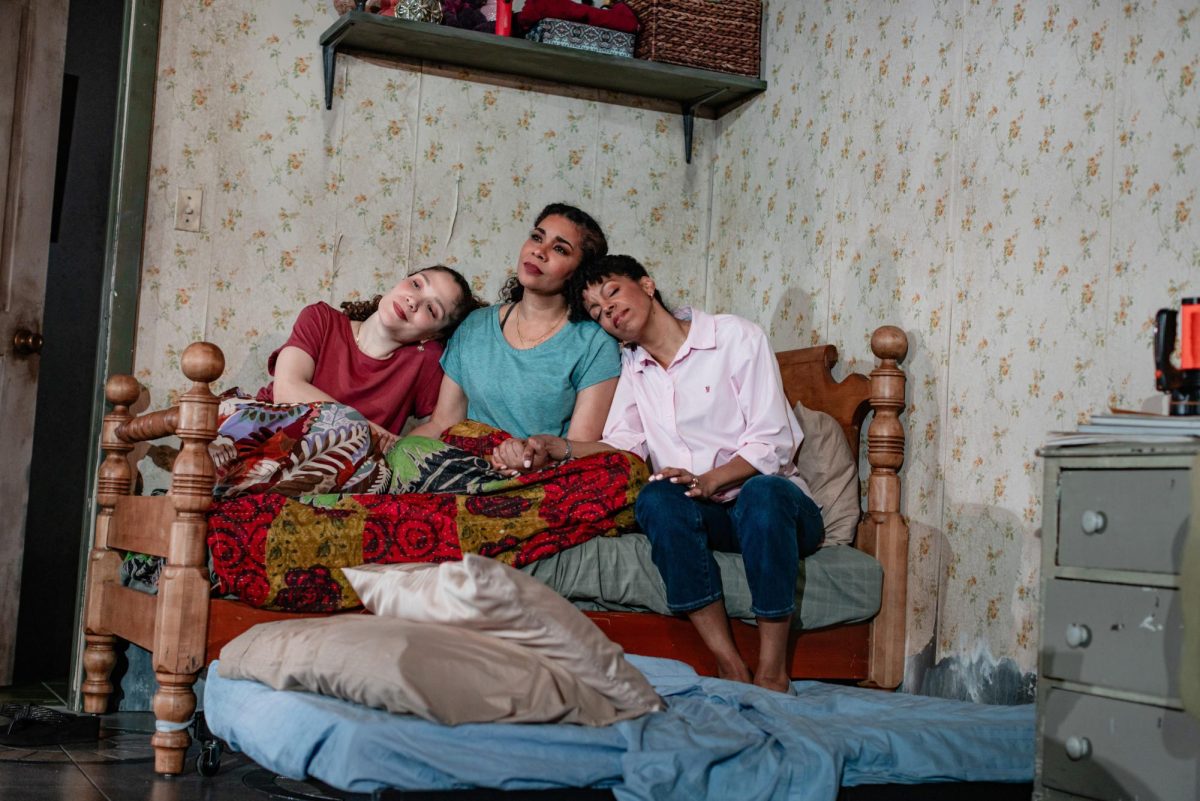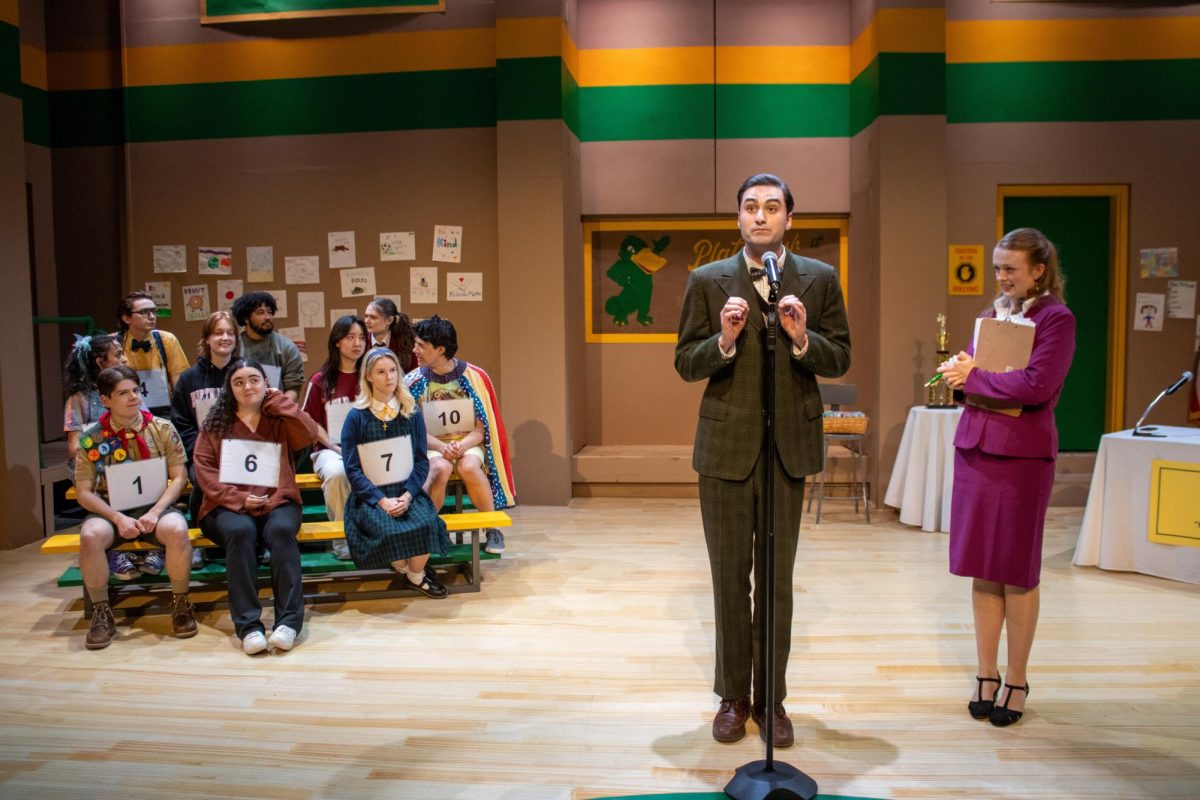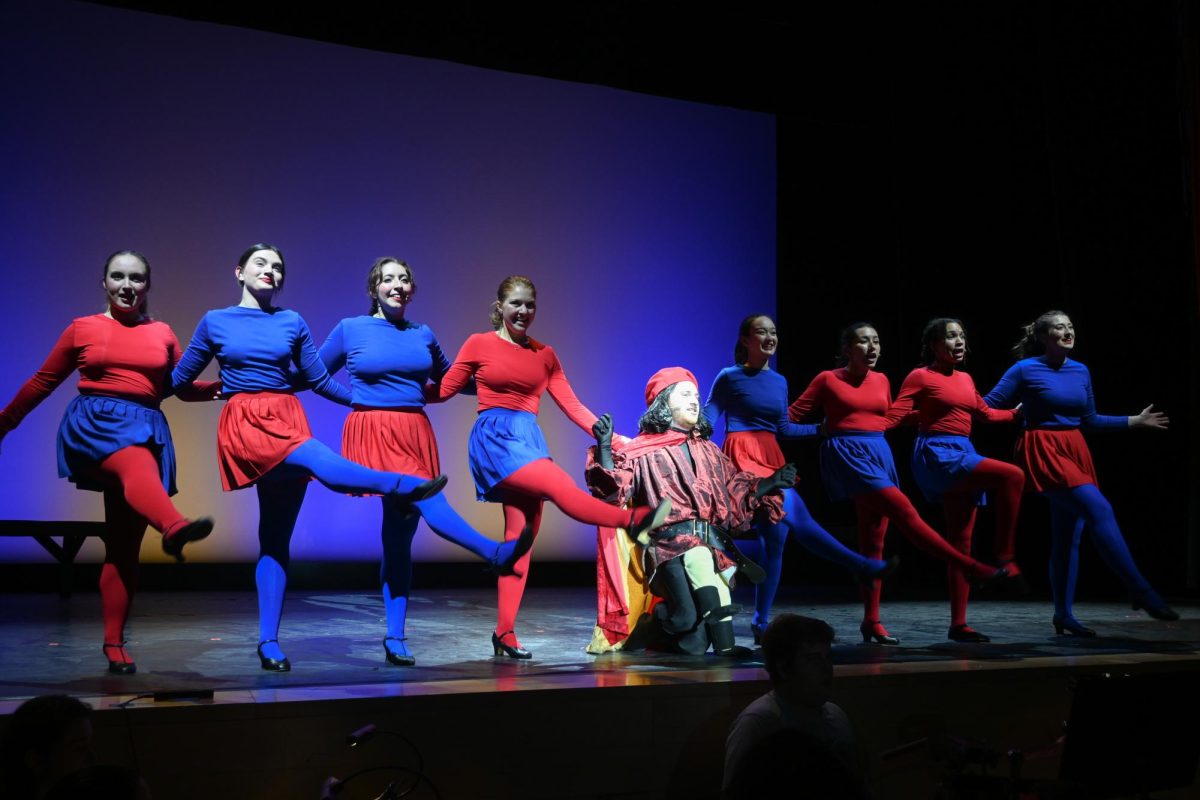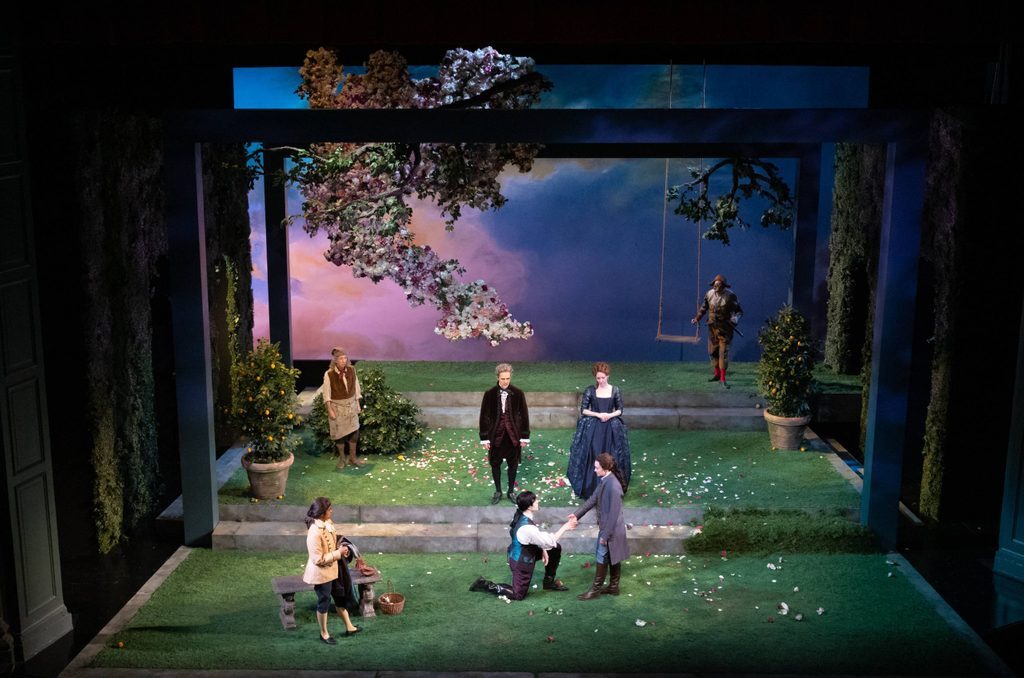By Juan Ramirez, news staff
The last few James Bond films have dealt with the harsh aging of an outdated man in the face of unforgiving modernity. Much like that legendary British institution, both the theatrical farce and literature’s favorite detective are in peril in “Sherlock’s Last Case,” which opened at the Huntington Avenue Theatre Wednesday night.
Written by Charles Marowitz and directed by Maria Aitken as a sort of highbrow fan fiction, the play finds Sherlock Holmes towards the end of his practice, basking in opium-infused comfort instead of investigating new cases. His leisure is disrupted when he learns the son of his recently defeated nemesis Professor Moriarty plots to avenge his father’s death. Longtime sidekick Dr. Watson, though tired of his master’s overbearing behavior, offers to help, but Holmes is cavalier in thinking no harm could come to him.
Alas, dear reader, it remains a far more interesting text to analyze than a play to watch. It sets itself up as a farce, falls flat toying with that genre, then restructures itself as the self-aware final entry in the Sherlock Holmes canon. As Holmes combs through his storied past and Watson grips tightly onto his own future, their place in local British culture is called into question. The turn into mystery meta-thriller is a welcome one, especially in these days of reevaluating what was once thought to be established.
It is during this turn that the focus shifts from Holmes to Watson (a sterling Mark Zeisler), and the play allows itself to explore its universe’s legacy. As played by Rufus Collins, Holmes is a comedy straight-man right out of an Oscar Wilde piece, doling out snarky retorts and taking everything in stride. The determined detective of Arthur Conan Doyle’s novels is found only in the famous silhouette hanging on the wall. A comedic approach to a self-serious man is nothing new in the world of farce, yet Holmes seems too at ease to care much whether his punchlines — what few there are — land.
As always, a Huntington production’s scenic design is impeccable. The two sets, courtesy of Hugh Landwehr, provide a classic upstairs/downstairs division: Holmes’ home office is appropriately cozy in a professional, Victorian sort of way, while an underground basement that comes into play gives the Phantom of the Opera’s lair a run for its money. The basement, in which evil plots are laid bare, injects the production with the spooky atmosphere for which the novels are lauded and kicks the cast into much-needed high gear.
“Sherlock’s Last Case” will certainly enrapture the Victorian mystery crowd, if not those looking for a night of pure comedy. As for the state of farce, it remains to be seen whether it will survive in the age of meta-commentary. As far as British institutions go, if the Bond films are any indication, Holmes will survive regardless of the context.
Huntington Theatre Company’s “Sherlock’s Last Case” is in performance at the Huntington Avenue Theatre through Oct. 28.


